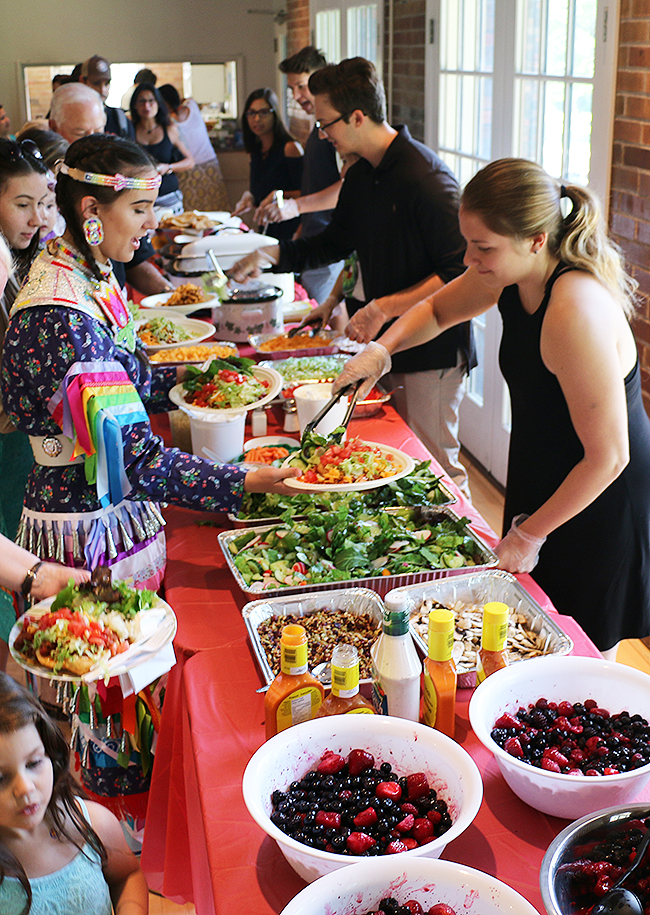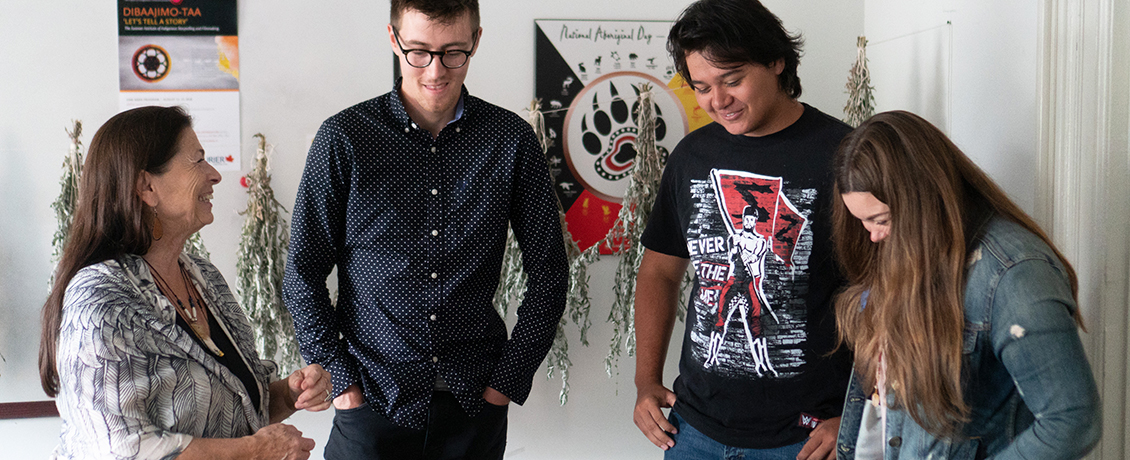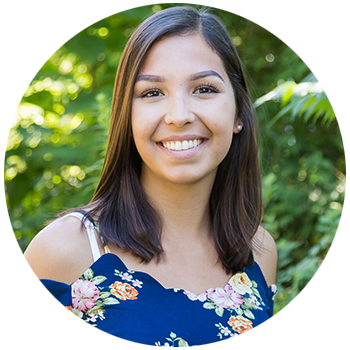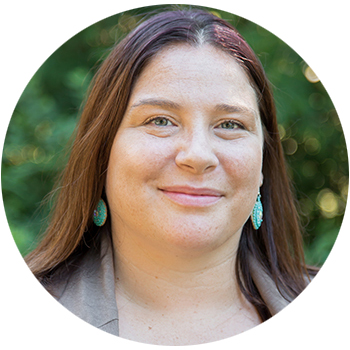It's a Tuesday morning at the Indigenous Student Centre on Laurier's Waterloo campus. Jenna Parent is working with colleagues to prepare "feast bundles" containing plates and cutlery that will be used at an upcoming community meal to mark National Indigenous Peoples' Day.
The task may seem mundane to some, but for Parent it's an activity that brings her closer to her Indigenous heritage.
"The community here has helped me understand myself, learn about my history and what it means to be Indigenous," says Parent, a third-year psychology student whose family is of Mi’kmaq heritage. "I wouldn't be who I am without the connections and the supports that I have here at Laurier."
At the heart of the Laurier experience for many Indigenous students is time spent at the university's two Indigenous student centres, places where First Nations, Inuit and Métis students can discover a connection to their past, a community for the present and destination for the future.
The centres – one in Waterloo and one in Brantford – offer a welcoming space and community atmosphere for study, relaxation and cultural programming, as well as connections to supports including academic advising, bursary and scholarship information, research assistance and access to Indigenous elders-in-residence. Designed to be a home away from home, each centre includes a living room area with couches, a dining area and full kitchen where weekly soup lunches are served, bringing Indigenous and non-Indigenous students, staff and faculty together to share a meal. Outside of the centres, Indigenous community gardens serve as ceremonial and educational spaces.


Parent says such supports are key for Indigenous learners.
"The supports offered and relationships I have formed here have made my time at Laurier the best," she says. "They've helped me learn a lot and grow."
As Laurier's manager of Indigenous student services, Melissa Ireland oversees the university's Indigenous student centres. Ireland says the centres represent the university's commitment to creating a welcoming environment for Indigenous students, as well as bringing Indigenous and non-Indigenous students, faculty and staff together in an effort to build understanding.
"This is a place where Indigenous students don’t have to check themselves at the door and can always be themselves," Ireland says. "They really like the fact that they can come here and express who they are, access traditional medicines and form strong peer connections."
 Laurier students studying in Waterloo, Brantford and Kitchener have access to Indigenous elders-in-residence.
Laurier students studying in Waterloo, Brantford and Kitchener have access to Indigenous elders-in-residence.
Alanah Jewell, a fourth-year sociology student whose family is from the Oneida Nation of the Thames, says she used to be a "passive learner" when it came to Indigenous issues. That changed after she connected with the Indigenous Student Centre on Laurier's Waterloo campus.
"A lot of Indigenous students have really unique lives and backgrounds, so it's really important that they find someone who they can relate to," Jewell says. "It's important to find community and find resources that will help you through and support you spiritually or academically."
Thanks to the support she received at the Indigenous Student Centre, Jewell says she now has the confidence to speak out about Indigenous issues in the wider university community, including in the classroom.
"A lot of times when people are discussing topics related to Indigenous peoples in class, it's like we're not there," Jewell says. "I find it difficult to be the spokesperson for everyone, but if there's no one there to say anything or speak up, people are going to continue to think wrong-headed things."
Supports offered to Indigenous students have expanded dramatically since Ireland started as Laurier's Indigenous student support coordinator in 2010. During her early days in the position, she worked in a space in the Bricker Academic Building on the Waterloo campus.
"A small office with two desks, across from the mathematic assistant centre," Ireland recalls. "When I started we certainly didn’t have an Indigenous Student Centre."
After hiring a student to help with outreach, Ireland set out to connect with Indigenous students on campus. She quickly found that Indigenous learners were lacking a community they could identify with.

– Alanah Jewell
"At first, we booked out lounge space and we would invite students to come and meet," she says. "And from there relationships started to form.

– Melissa Ireland
"There was a real hunger for community…a lot of people were walking around thinking they were the only Indigenous students on campus. It was really nice to have people gather and know that there was community."
Ireland says the challenges faced by Indigenous students mirror those faced by non-Indigenous students — access to funding, resources and community support among them — but are often made more challenging by factors such as students being away from their home community and culture for the first time and a lack of family experience in post-secondary education.
"A lot of times our students are intimidated by processes at the university," Ireland says. "Many of them are first-generation students."
Seeing a need, Ireland set out to develop programming shaped to serve Indigenous students. Her efforts led to the opening of the Waterloo campus Indigenous Student Centre in 2011, with the Brantford campus Indigenous Student Centre opening soon after. Today, the centres are the heart of vibrant Indigenous student communities, places that offer not only academic assistance and referral programs, but cultural programming and a strong network of peer and professional connections.
"In the beginning, there were many more requests for tutoring or writing help, or access to learn study skills," Ireland says. "But for the students today it's more about learning about their culture and making connections."

Elizabeth Best, whose family is from Manitoulin Island, graduated from Laurier last spring with a master's degree in history. She says support from the Indigenous Student Centre was essential in her academic journey.
"The community I found at Laurier is really important," Best says. "Outside of academia, I learned so much. The Indigenous Student Centre connected me to elders, it connected me to support systems. Indigenous students don't have to go outside of the centre to find those supports."
While Best recently started working toward her PhD at York University, she says she won't lose touch with the friends she made at Laurier. It's a familiar sentiment, Ireland says, noting that graduation rarely spells the end of students' ties to Laurier's Indigenous student centres.
"It's about the relationships formed, the connections made and the community building," Ireland says. "It's also about challenging them to grow and to see new possibilities for themselves. And our support doesn’t stop when they graduate.
"What I really love is the ongoing relationships we share with the students, watching them go from the beginning to the end of their education and seeing the people they turn out to be."